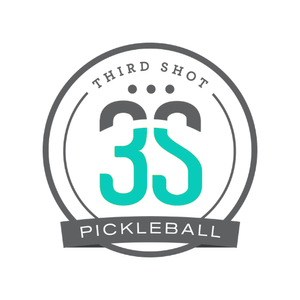By Mark Renneson
Whether it fully deserves it or not, pickleball (for the most part) enjoys a reputation for being a welcoming sport. Stories abound of non-players showing up at local courts only to be met by a friendly crew of pickleheads with some extra paddles and nothing but enthusiasm. We hear of travellers welcomed with open arms when joining a drop-in session in a different city. And if you ever need a place to crash, just find a local pickleball club and doors will open.
And this is good. But at the risk of blowing a hole in this feel-good bubble, I’d like to make a suggestion. I’d like to remind people that you do not, in fact, need to play pickleball with anyone that asks you to.
Most of us have been in a situation where people we’d rather not step on a court with ask us to play. Our reluctance might come from the person’s poor behaviour; perhaps they have been rude or abusive to others in the group. Maybe it’s a person with whom we have fundamental disagreements with — disagreements so strong that you can’t look past them even to play a game. Maybe you don’t want to play with them because, well, they’re level is just so much lower than yours and the people you are playing with that it will diminish the fun you and the others are likely to have.
Now I’m not saying you need to be rude in your rejection either. There are many polite ways to decline. But I am advocating for people to feel empowered to have some say over who they get on the court with.
The Exceptions
If you are playing at a venue that has clearly stated policies about how play is organized, and you choose to play there, then you are agreeing to play by their rules. If the common practice is that the next four people in line go out on the court together, it’s not cool to be number four, look up ahead, and then swap places with someone because you don’t like your grouping.
And if there is a sign-up board where the rule is if there is an open space anyone can add their name to it, if you want to keep playing with that crew you best abide by the rules when the 3.0 adds their name to the court with you and your 4.0 friends. You don’t have to like it, but by playing in that place you should honour their format.
Further, if you are all part of the same club you may have some measure of obligation to acquiesce since the nature of a club is that people are bonded together in a way that non-members aren’t.
Changing the Scenario
Let’s imagine you and your friends are enjoying a cold drink at your favourite bar. And while there, a person you don’t know really well — or one you do know but don’t care for — comes up and asks if they can join you. While you might choose to pull up a chair for them, you are certainly under no obligation. This is your time with your friends and you have the right to choose who you include (or not) in that group.
The same goes for pickleball. If you and the people you like to play with are enjoying some leisure time together, you are under no requirement to include someone else just because they ask. Their desire to be part of your group doesn’t outweigh your desire to choose who you play with.
That doesn’t give you permission to be rude or cruel, of course. There are many gracious ways to get out of this situation:
“Actually, we’ve really been looking forward to playing together for some time. Maybe later?”
“I hope you don’t mind, but we’ve got a bit of a rivalry going. We’d like to keep playing as a group.”
“Thanks for asking. We’re actually all working on some things together so we’d prefer to keep our group as it is.”
“We’ve had some really good games lately, and we’d like to keep it going. I’m sure you understand.”
Is it possible that the person being rejected gets their feeling hurt? Absolutely. And I think we have an obligation to limit the degree to which this happens. But it is also important to remember that they put themselves in a vulnerable position for that to happen when they chose to approach a group and try to enter it.
Stay up to date with the latest in the world of pickleball by signing up for our newsletter, Inside Pickleball! Get exclusive access to insider tips, expert advice, and the latest news and trends in the game. Don't miss out on this opportunity to stay in the loop and take your pickleball game to the next level. Sign up now!
Dealing with Consequences
While I’m arguing that you should be able to freely decline to play with someone you don’t want to, that doesn’t mean that there aren’t consequences you might have to pay. You may be perceived by others are being a snob; of thinking yourself superior or too good to play with others. There can be social penalties too, like not getting invited to post-pickleball drinks or the next barbecue. How heavily these things weigh is a matter for each person to consider on their own.
It’s also important to think of other costs of turning someone down. Did you just lose out on making a new friend? Did you just blow a chance to make someone feel good and included? Was this a chance for you work on aspects of your game now that the competitive element wasn’t so strong? These are all worth considering when making your decision. It is just a game after all, right?



